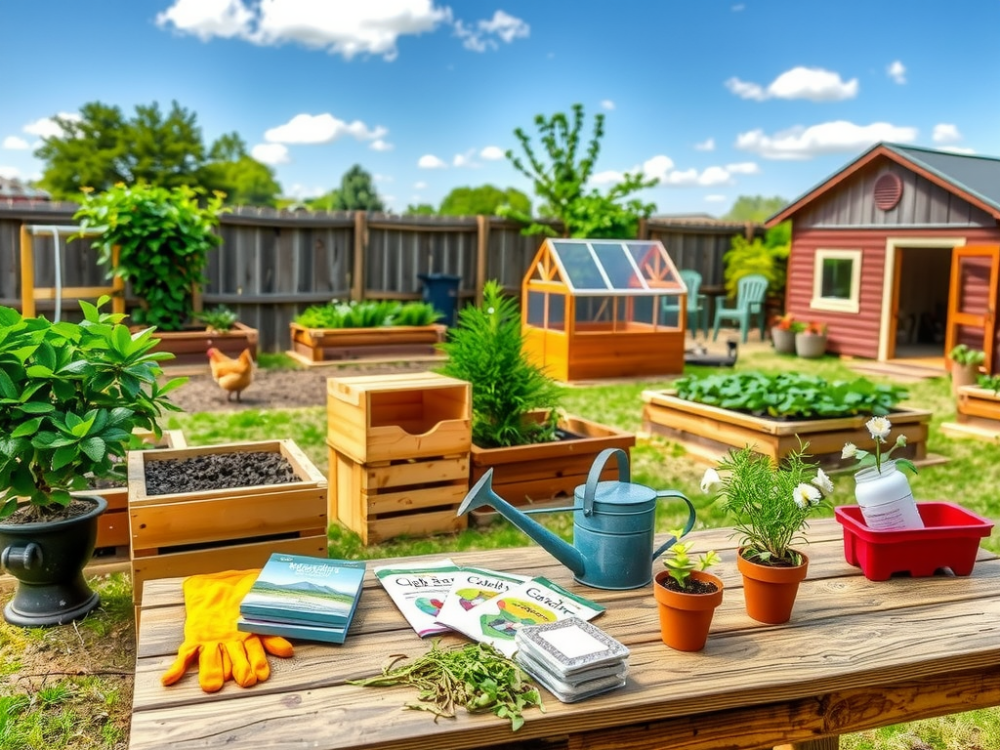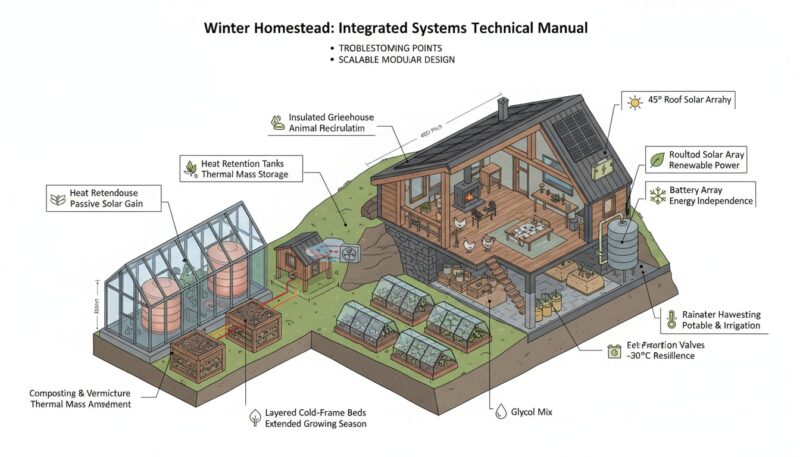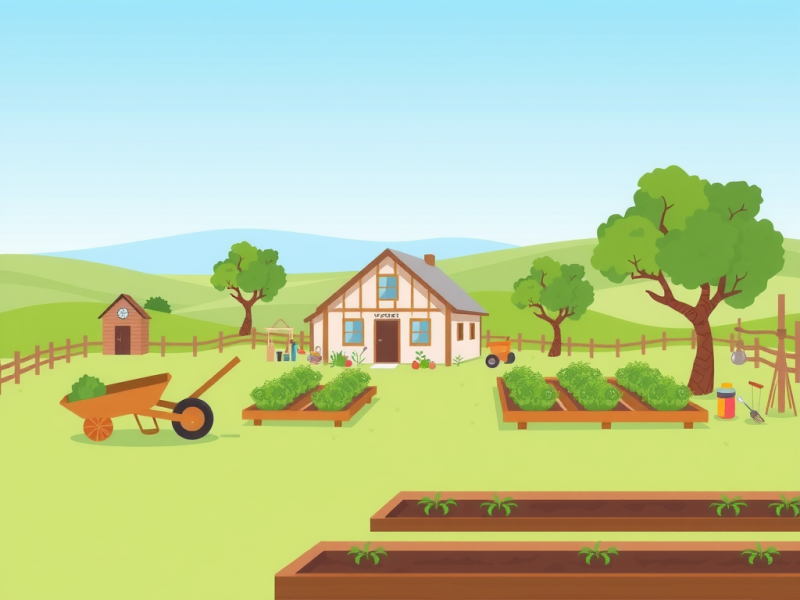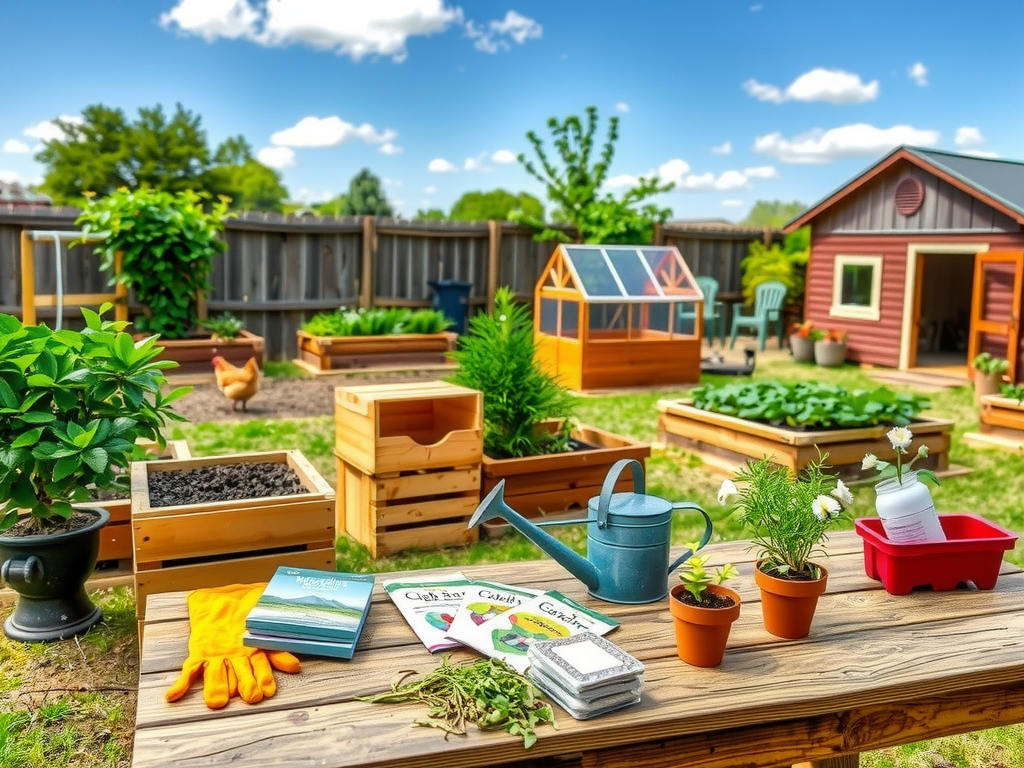
Embarking on a homesteading adventure is an exciting journey, filled with the promise of sustainable living. To make this transition smoother, gathering basic homesteading supplies is key.
Having items like compost bins and water storage solutions will form the foundation of your self-sufficiency.
When you jump into gardening and food preservation, reliable tools are your best friends, helping you navigate daily tasks with ease.
With the right supplies, not only will your life become simpler, but you’ll also foster a deep connection with your land and community. Get ready to embrace the joys of homesteading!
Essential Hand Tools for Homesteading
To tackle daily homesteading tasks effectively, the right hand tools can be a game changer.
Let’s explore some must-have tools that elevate your gardening efforts and enhance efficiency.
Key Hand Tools
- Garden Forks – Perfect for turning and aerating soil.
- Spades – Essential for digging and moving earth.
- Pruning Shears – Great for maintaining the health of your plants.
These tools not only enhance your gardening skills but also simplify tasks like tilling soil and building fences. Regular maintenance, such as cleaning and sharpening, keeps your tools in prime condition. This practice extends their lifespan, so they’re always ready to help with your next homesteading project.
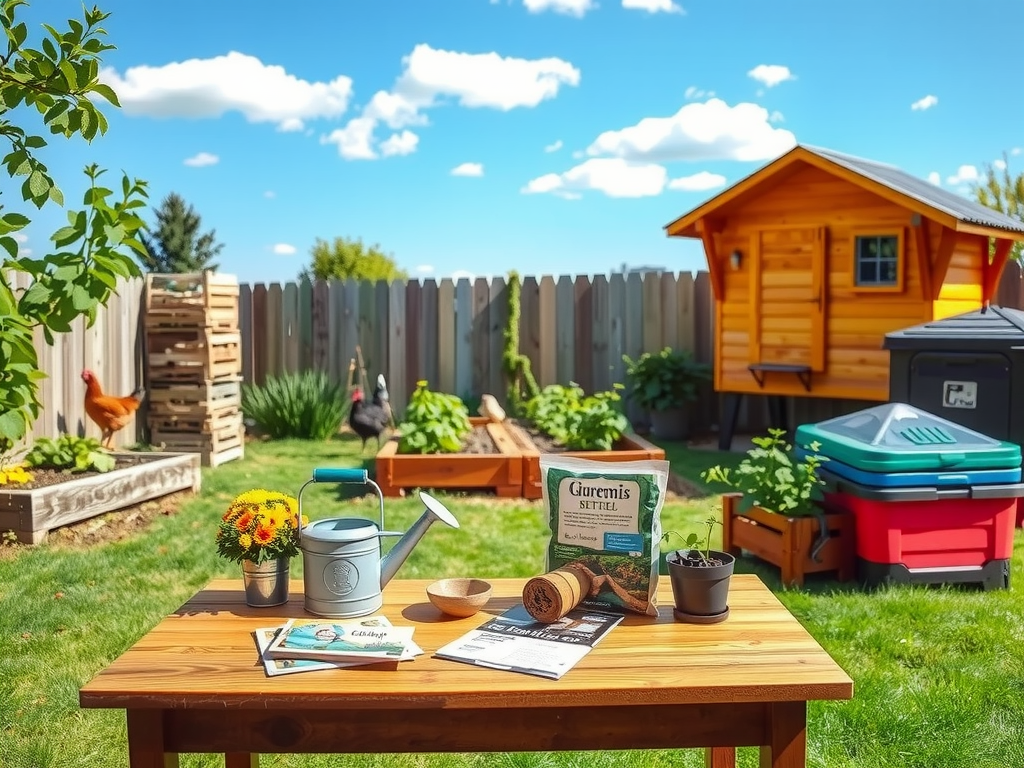
Getting Started with Other Supplies
As you continue your homesteading journey, you’ll discover a variety of supplies that make life easier. Here’s a quick rundown:
- Power Tools – Items like saws and drills can streamline large-scale projects.
- Gardening Equipment – Consider broadforks and wheelbarrows for improved soil management.
- Water Storage – Utilize rain barrels and food-grade buckets for effective water conservation.
- Animal Care – Supplies such as iodine spray ensure happy, healthy livestock.
- First Aid Kits – A stocked kit is a must, both for humans and animals.
- Fuel and Lighting – Generators and rechargeable flashlights offer peace of mind during power outages.
- Kitchen Tools – Cast iron cookware and dehydrators are essentials for food preservation.
By integrating these supplies into your homesteading routine, you’ll become adept at managing daily tasks and handling any unexpected challenges that arise. Happy homesteading!
What Gardening Equipment Do You Need
Starting your homesteading adventure? Equipping yourself with the right gardening equipment makes all the difference. While tools like hand trowels and pruners are perfect for beginners, don’t overlook the value of a durable wheelbarrow or quality garden forks.
These tools will save you time and effort as you handle tasks in your garden.
- Hand Tools: Think about essential options like spades, hoes, and rakes to tackle various gardening projects with ease.
- Power Tools: Incorporating drills and saws can significantly simplify larger DIY projects that elevate your garden setup.
Here’s a friendly tip: Consider managing your tool inventory according to the seasons! For winter, take the time to clean your gardening equipment and store it properly. This little effort will keep your tools in top shape, ready for the next gardening season.
Benefits Of Compost Bins Explained
Let’s talk about how composting can enhance your gardening efforts. Compost bins provide an easy way to recycle those kitchen scraps while improving your garden. Composting not only reduces waste but also enriches your soil, making it a truly eco-friendly practice.
Environmental Impact
By embracing composting, you actively contribute to soil health and encourage biodiversity in your garden. When you incorporate compost into your soil management, you help create a thriving ecosystem.
Soil Health
Nutrient-packed compost works wonders for soil structure, moisture retention, and overall plant growth. It’s like giving your plants a little treat to keep them strong and healthy.
Starting Your Composting Journey
Ready to get started with composting? Choose a sunny spot in your yard, begin collecting your kitchen scraps, and mix them with some yard waste. With a bit of patience and care, you’ll soon have rich, organic compost to give your garden a boost!
Gardening Equipment and Composting
- Using the right gardening tools can reduce physical strain and increase efficiency by up to 30%.
- Composting can divert up to 30% of household waste from landfills, significantly reducing your carbon footprint.
- Healthy compost can improve soil structure, leading to increased water retention and reduced need for irrigation.
- Incorporating compost can enhance plant growth by providing essential nutrients, resulting in higher yields for vegetable gardens.
Choosing Power Tools For Efficiency
Power tools can drastically improve your daily homesteading tasks, making them not only simpler but also faster. When it comes to selecting your tools, always ensure you prioritize safety first.
Wearing protective gear like safety goggles and gloves is essential to avoid injuries while you work.
Keeping your tools well-maintained ensures they perform efficiently and have a longer lifespan.
For large wood cutting, a chainsaw is the right tool, while a drill works perfectly for fastening projects.
By matching your power tools to specific tasks, you boost your productivity and enjoy the many rewards of homesteading. Remember that investing in quality tools pays off in the long run.
Tip: Take the time to learn about the different types of power tools available and their specific applications for tasks on your homestead.
Basics Of Livestock Care Supplies
Caring for livestock goes beyond just feeding them; it requires a collection of essential supplies that ensure their wellbeing. Items like iodine spray, bag balm, and basic fencing solutions play key roles in maintaining health and safety on your homestead.
As you gather your supplies, think about organizing them effectively.
- Use labeled bins or storage containers to keep everything neat and easily accessible.
- A quick inventory check every so often helps ensure you have all the necessary items on hand for emergencies or daily care routines.
By staying organized, you can focus more on the care of your livestock instead of searching for supplies. This approach enhances your efficiency while ensuring your animals remain healthy and happy.
Power Tools and Livestock Care
- Using power tools can reduce task completion time by up to 50% compared to manual methods.
- Regular maintenance of power tools can extend their lifespan by 30% or more.
- Organizing supplies can improve efficiency by reducing the time spent searching for items by 40%.
- Proper livestock care supplies can prevent common health issues, reducing veterinary costs by up to 20%.
Tips For Food Preservation Techniques
Want to keep your homegrown food fresh longer? Food preservation techniques are your best pals on the homesteading journey! Each method suits various food types; for instance, canning works wonders for fruits and vegetables, while freezing shines for meats and cooked meals. If you have an abundance of herbs, dehydrating is a fantastic choice.
Fermenting can also enhance flavors and add a zing to your meals!
Labeling and Storage
Proper labeling and storage matter a lot; use clear containers and mark them with dates and contents.
This simple tip helps you keep track of what’s still good to eat and reduces waste, all while promoting sustainable living.
First Aid Kits: What To Include
Staying prepared is essential for every homesteader, especially during minor accidents! A well-stocked first aid kit can prevent small issues from escalating into bigger problems.
A few essential items you should have include:
- Bandages for cuts and scrapes
- Antiseptics to ward off infection
- Burn cream if you’re often in the kitchen
Don’t overlook the importance of adding emergency contact numbers for quick access. Customizing your kit for specific needs is a smart move—consider adding supplies for pets or any particular health concerns.
Being ready ensures you can handle any situation—after all, safety is key in homesteading!
Food Preservation and First Aid Kits
- Canning can extend the shelf life of fruits and vegetables for up to one year.
- Freezing can preserve the quality of meats for 6 to 12 months, depending on the type.
- Dehydrating herbs can retain their flavor and nutritional value for several months.
- Having a first aid kit can reduce the risk of infection by providing immediate care for injuries.
How To Utilize Rain Barrels Effectively
Have you ever thought about how rain barrels can transform your gardening experience? With the right setup, rain barrels not only conserve water but also serve as a sustainable source of hydration for your plants. Collecting rainwater reduces your reliance on municipal supplies, making it an essential part of your homesteading toolkit.
Linking Rain Barrels to Water Conservation
Collecting runoff from roofs, rain barrels significantly reduce your water usage.
Did you know rainwater is naturally soft and free from harsh chemicals? It’s perfect for gardens, making maintaining a sustainable garden much easier.
Have you considered all the benefits of rainwater for your plants?
Benefits of Using Rainwater
Using rainwater not only benefits the environment, it can also help lower your water bills.
Imagine flourishing gardens supported by fresh rainwater! This precious resource can be used for watering plants, washing your gardening equipment, or even supplying livestock. Isn’t it inspiring to know that rainwater can replace tap water for so many purposes?
Using rainwater helps create a thriving homestead while promoting sustainable living.
Practical Tip: Maintenance and Cleaning of Rain Barrels
To keep your rain barrels effective and safe, regular cleaning is important.
Every couple of months, empty the barrel and scrub the insides with a mix of vinegar and water. This simple method helps prevent algae buildup and keeps the water fresh for your plants.
After rinsing and drying, you can refill it to ensure your garden thrives even during those dry spells.
A little maintenance goes a long way in extending the life of your rain barrels.
Rain Barrels
- Rainwater harvesting can reduce water usage by up to 50% in residential areas.
- Using rainwater for irrigation can save homeowners an average of $200 annually on water bills.
- Rainwater is free from chlorine and other chemicals found in municipal water, making it ideal for plants.
- Regular maintenance of rain barrels can extend their lifespan and ensure clean water for gardening.

